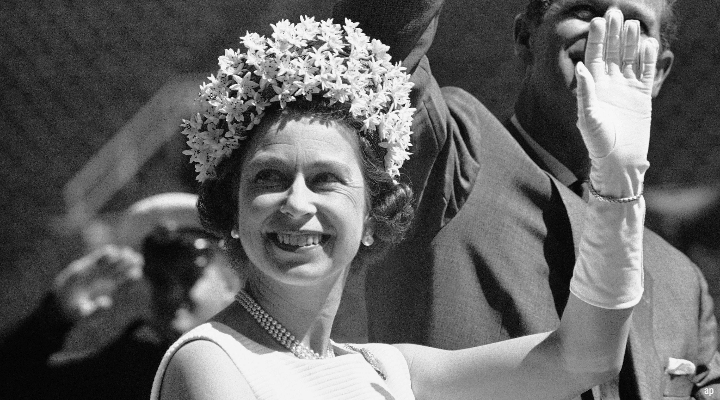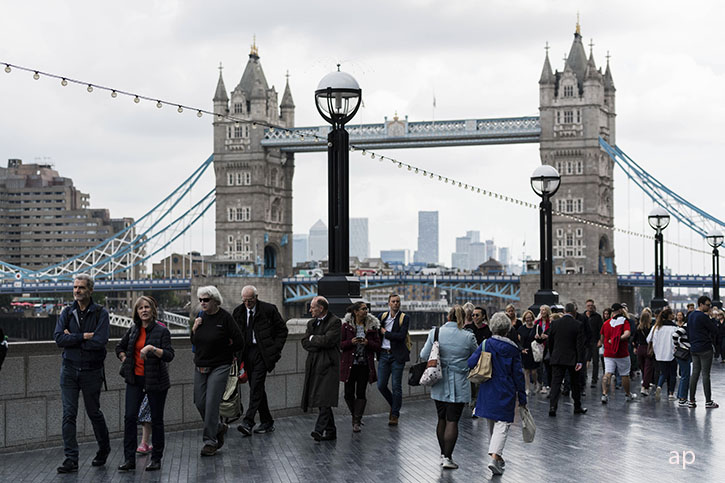
A reasonable amount has been written and said about the Queen in recent days and that’s entirely appropriate given her pivotal position in Britain’s sense of identity. I have nothing original or inspiring to add about the former monarch, but I have been thinking about staying power, longevity and the power of time.
One of the biggest issues with saving and investing is knowing how long you’re going to live. When you're young you can't conceive of being old, or even living until you're 100.
Retirement planning would be so much easier if you had a fixed date to work with (or even a ballpark figure). Life expectancy figures, genetics, luck (good and bad), illness and wealth are all powerful variables that actuaries have to blend together. You could live for the average lifespan (81.65 years), below or above that. In this context, starting investing at say 21 when you leave university – if that’s the path you’ve chosen – you could have 60 years to build an ISA portfolio, pension pot or both. Living longer is ideal for many reasons, in that your loved ones get to spend more time with you (my grandparents, who were born two years before the Queen - and received a message from her on their platinum wedding anniversary - got to meet their great-grandchildren).
Being ill later in life is the obvious drawback to people living longer, especially if that carefully accumulated capital has to be plundered to fund health and social care. We’ve had news this week that French film director Jean-Luc Godard, died at the age of 91 through assisted suicide in Switzerland after battling multiple illnesses.
The Queen (and her mother, who made it to 101) were outliers for her generation in terms of age but her father, George VI, died age 56. Death makes fools of statisticians and actuaries too: how can you plan for a difference of around 50 years in lifespan? The royals naturally have less to worry about financial planning than most people.
Saving by Saving - How it Works
Let's look at the maths of saving. Compound interest is a powerful thing, especially over a multi-decade time period – in this case I’m talking about 50 years plus. As my colleague Sunniva Kolostyak has spoken about a lot over the past week, people tend to underestimate the impact of reinvested interest. Just look at how much of an impact the price of a coffee can make, if you invested it instead.
The below table shows how our savings would accumulate if we started with £100 in your savings account and added an extra £100 at the end of every year.
Even if your savings only provide you with 3% interest on an annualised basis, in 30 years, you’ll have £5,000 in your account. And to point out the obvious: without interest, you’d have £3,100 set aside.
If you did save for the length of the Queen’s reign, an astonishing 70 years, that’s £23,851 at 3%. If the annualised return is upped to 5%, your account will jump to £61,895. And, if in the probably unlikely scenario that you are Warren Buffett, earning 20% annually but still only investing £100 a year, over 70 years, you will have £209,332,874 in your savings. That's two hundred and nine million pounds. The figures exclude the impact of inflation, taxes, fees etc.
Staying Power
Apart from high-quality medical supervision, the Queen had no control over her longevity and to a certain exent, neither do her subjects. And the nature of her role meant she would be monarch for the duration of her life. Politicians and even fund managers rarely have that much time to make an impact, given the harsh realities of commerce and governance. The latest Cabinet reshuffle was a prime example: Nadhim Zahawi was chancellor for just over two months. In the same week, abdrn announced that Harry Nimmo, manager of Gold-rated UK smaller companies funds, was to retire from the firm after 38 years. Baillie Gifford’s James Anderson, famed for his role as Scottish Mortgage Trust manager (alongside Tom Slater), also spent a similar amount of time at the firm and built a similar legacy – and loyal investor fan base.
While there’s a correlation between fund manager staying power and performance, the comparison with politicians could be unfair. Cabinet ministers and even the PM would no doubt like a 20 or 30 year run, but it’s expected that they have shorter shelf lives than money managers. You don’t have to be an expert in your subject to be a secretary of state, far from it, but rarely do you get long enough to make an impact. Does it matter who's chancellor anyway? The narrative is so driven by No 10, that it's hard to be an original thinker and get on at the top level.
The nature of the political cycle in Britain means that either Labour/Conservative parties get a decent run to make changes, but parties run out of ideas and luck in the end. It feels like we're closer to the end of this particular cycle, with the Conservatives in power since 2010.
If you want to be the next star fund manager or Cabinet minister, that’s not beyond the realms of possibility (private school and Oxbridge still help), but you are not going to be the monarch (unless Prince William is reading this). What you may have – but don’t realise it yet – is time. The latest generation of ISA investors, born in 2022, could easily make it to the Queen’s age and beyond. That means that even without generous parents filling up the Junior ISA allowance from day one, you could have a potential 50+ year run at the investing game. Life always gets in the way though.
Spend, Spend, Spend - or Save, Save, Save
Even if you are financially fortunate enough to use your ISA allowance every year (£20,000 for an adult), you will need money for education, property, children, holidays, health care, cars, etc. The pandemic may have even engendered a “what the hell” attitude among some savers – if a virus could take you off unexpectedly, why not spend and enjoy yourself? At the opposite end of the spectrum is the FIRE movement, which requires self-sacrifices that most are unable to make.
Philip Larkin, who died far too young at 63, was right about our inability to think beyond the everyday and comprehend glacial time: “We're not suited to the long perspectives/ Open at each instant of our lives.”
Still, times like these allow people to reflect on longevity and contemplate “long perspectives”. From the Queen’s birth in 1926, the S&P 500 has returned an average of double digits every year (dividends included) and that stretch has included: the Great Depression, WW2, the Cold War, the fall of the Soviet Empire and 9/11.











.jpg)
















